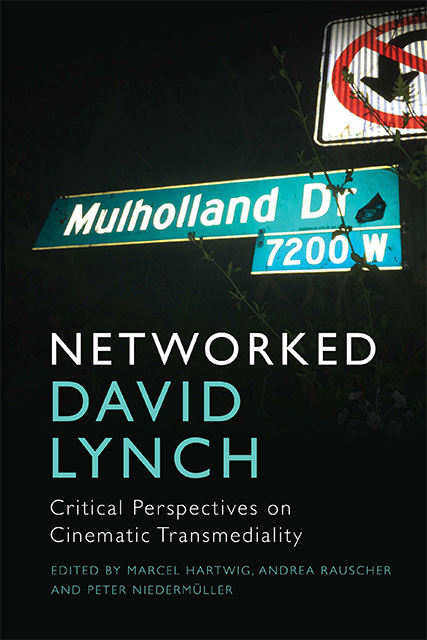Book contents
- Frontmatter
- Contents
- List of Figures
- Notes on Contributors
- Introduction: Entering Lynchtown
- Part I Approaching Intertexts
- Part II Twin Peaks as Transmedia Network
- Part III David Lynch's Transmedia Aesthetics
- Part IV Videographic Criticism of David Lynch’s Cinematic Work
- Conclusion: Leaving Lynchtown
- Index
Chapter 9 - Tracing the Lost Highway: Mythical Topography in David Lynch's Los Angeles Trilogy
Published online by Cambridge University Press: 19 October 2023
- Frontmatter
- Contents
- List of Figures
- Notes on Contributors
- Introduction: Entering Lynchtown
- Part I Approaching Intertexts
- Part II Twin Peaks as Transmedia Network
- Part III David Lynch's Transmedia Aesthetics
- Part IV Videographic Criticism of David Lynch’s Cinematic Work
- Conclusion: Leaving Lynchtown
- Index
Summary
For a millennium, the space for the hotel room existed, undefined. Mankind captured it, and gave it shape and passed through. And sometimes when passing through, they found themselves brushing up against the secret names of truth.
David Lynch, Hotel Room (1993)Haunted Spaces
In his Jacques Derrida-inspired late writings The Weird and the Eerie (2016) Mark Fisher lists David Lynch's Mulholland Drive and Inland Empire as examples for the pop-theoretical approach of the author, linking these films with the concept of ‘Hauntology’ (Fisher 2016: 53–9). In doing so Fisher follows his idea that postmodern popular culture, especially pop music and cinema, are haunted by ghostly sounds, images and moods from the past or another timeframe. While referring back to Jacques Derrida's concept of hauntology (in Specters of Marx, 1994), this term originally combines the concepts of haunting and ontology (the doctrine of beings) in a neologism. According to Derrida hauntology signifies the presence (or the ‘obvious non-present’) of ideas, theories and ideologies from the past, which, even if they fail in practice, are still present in the thought structures of the present and thus shape our reception and thinking. While Derrida referred primarily to the theories of Karl Marx, which failed largely due to the end of the Cold War after 1989 and were considered to be no longer relevant, hauntology also includes the theory of ‘haunted places’, according to which certain events can be ‘imprinted’ on a place in a way that they are repeated over and over again. Such places are haunted by the past. Mark Fisher (2014) used the term to describe a musical aesthetic preoccupied with this temporal disjunction and the nostalgia for ‘lost futures’. In another article, Fisher writes on hauntology: ‘When the present has given up on the future, we must listen for the relics of the future in the unactivated potentials of the past.’ (2013: 53)
It is remarkable that David Lynch chose the iconic city of Los Angeles as the location for his most intense ‘haunted’ thrillers. Mulholland Drive and Inland Empire as well as Lost Highway unfold the cityscape of the South-Western metropolis as a topography of mythical Hollywoodland – as a part of this area was called during the early studio years – and the life stream of this area is Mulholland Drive, winding its way through the Hollywood hills.
- Type
- Chapter
- Information
- Networked David LynchCritical Perspectives on Cinematic Transmediality, pp. 159 - 171Publisher: Edinburgh University PressPrint publication year: 2023



